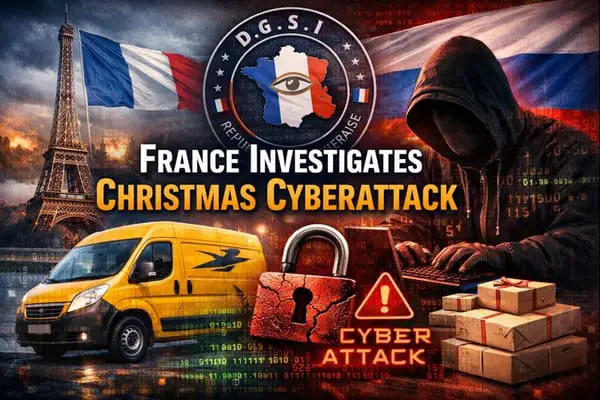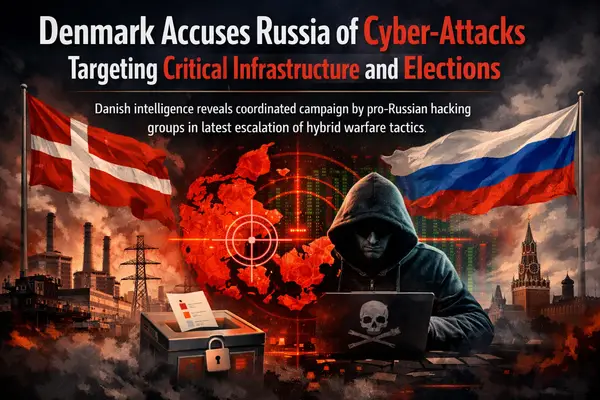Japan's Askul Falls Victim to RansomHouse: 1.1 Terabytes of Data Stolen in Sophisticated Extortion Campaign

Japanese retail giant Askul Corporation has confirmed a significant data breach following a ransomware attack that disrupted operations across its e-commerce platforms and compromised sensitive customer and supplier information. The Russia-linked extortion group RansomHouse has claimed responsibility for the attack, asserting it exfiltrated approximately 1.1 terabytes of data from the company's systems.

The Attack Timeline
The cyberattack first surfaced on October 19, 2025, when Askul detected ransomware infiltrating its computer systems. The company immediately isolated infected systems, including critical logistics functions, and suspended order processing across its three primary e-commerce platforms: Askul (office supplies), Lohaco (household goods), and Soloel Arena (corporate clients).
On October 31, 2025, Tokyo-based cybersecurity firm S&J Corporation discovered a statement posted on the dark web by RansomHouse claiming responsibility for the attack. According to the threat group's announcement, they successfully stole 1.1 terabytes of data, including customer information and purchase histories, which they threatened to make publicly downloadable.
Askul officially confirmed the data breach on November 1, 2025, acknowledging that contact information and inquiry details from users across all three online platforms, along with supplier data stored on internal servers, had been compromised. The company emphasized that credit card information was not affected by the breach.
Supply Chain Disruption
The attack's impact extended far beyond Askul's direct operations, creating ripple effects throughout Japan's retail ecosystem. Several major retailers that rely on Askul's logistics infrastructure experienced significant operational disruptions:
- Ryohin Keikaku Co. (operator of the popular Muji brand) was forced to suspend shipments from its online stores
- The Loft Co., which operates Japanese lifestyle specialty stores, faced similar logistics interruptions
- Multiple other retailers using Askul-affiliated logistics services experienced delays and cancellations
The incident underscores the vulnerability of interconnected supply chains, where a single point of compromise can cascade into widespread disruption across multiple businesses and their customers.
RansomHouse: A Different Breed of Extortion
RansomHouse represents a distinctive evolution in the ransomware threat landscape. Unlike traditional ransomware operations that encrypt victim data and demand payment for decryption keys, RansomHouse operates primarily as a pure data extortion group.
Operational Model
First emerging in March 2022, RansomHouse employs a Ransomware-as-a-Service (RaaS) business model where affiliates leverage the group's infrastructure to conduct attacks. However, the group frequently skips the encryption step entirely, focusing instead on data exfiltration and extortion threats.
This approach offers several advantages for the threat actors:
- Minimizes immediate operational disruption for victims (reducing urgency for law enforcement response)
- Maintains continuous extortion pressure through data exposure threats
- Reduces infrastructure costs associated with maintaining encryption capabilities
- Enhances operational security by simplifying their technical footprint
Russia Connections
Cybersecurity researchers have established connections between RansomHouse and several Russia-aligned threat actors, including:
- ALPHV/BlackCat
- LockBit 3.0
- RagnarLocker
- BianLian
Analysis of cross-claims and shared infrastructure suggests potential collaboration among these groups. The interconnected nature of Russian cybercrime operations enables threat actors to share resources, tactics, and even victim data across different campaigns.
According to S&J Corporation President Nobuo Miwa, the attack on Askul appeared "well planned" based on the specific information disclosed by RansomHouse—data carefully selected to inflict maximum reputational and operational damage on the company.
Notable Previous Targets
RansomHouse has built a reputation for targeting high-profile organizations across multiple sectors:
- AMD - Major semiconductor manufacturer
- University of Paris-Saclay - Prestigious French research university
- Bulgaria's Supreme Administrative Court - Critical government institution
- Cell C - South African telecommunications operator (2TB of data claimed)
- National Technology Co., Ltd. - Chinese semiconductor firm (3TB of data in February 2025)
The group's victim profile demonstrates a preference for organizations in education, government, manufacturing, healthcare, and technology sectors—entities likely to possess valuable intellectual property and sensitive personal information.
Data at Risk
While Askul has not disclosed the exact number of affected individuals or entities, the confirmed compromised data includes:
- Customer Information: Names of companies and individuals using Askul's online stores
- Contact Details: Telephone numbers and email addresses
- Inquiry Records: Historical customer service communications
- Supplier Data: Information about business partners and vendors
- Purchase Histories: Transactional data potentially revealing business operations and customer behavior patterns
The company has stated it will continue investigating the likelihood of additional data exposure as forensic analysis proceeds.
Japan's Growing Ransomware Crisis
The Askul incident represents the latest in a disturbing trend of escalating cyberattacks targeting Japanese corporations. October 2025 alone saw multiple high-profile ransomware incidents:
Recent Japanese Victims
Asahi Group Holdings - Japan's largest brewer suffered a ransomware attack claimed by the Russian-speaking Qilin gang, disrupting beer production and delaying product launches across the country. The company later confirmed that personal data may have been illegally accessed.
TEIN - The auto parts manufacturer experienced ransomware that crippled its headquarters network, halting operations across affiliated firms.
Sagawa Express - One of Japan's largest transportation companies reported unauthorized account logins traced to compromised credentials, though business systems remained unaffected.
This surge in attacks suggests Japanese corporations are increasingly becoming priority targets for organized cybercrime groups, possibly due to perceived vulnerabilities in cybersecurity infrastructure or delayed adoption of modern security practices.
Regulatory and Legal Implications
Askul's breach carries significant regulatory consequences under Japan's Act on the Protection of Personal Information (APPI), which mandates specific breach notification procedures and potential penalties for inadequate data protection measures.
The company has reported the incident to law enforcement authorities and is cooperating with police investigations. However, the challenge of attribution and prosecution remains substantial, as the suspected perpetrators operate from jurisdictions that rarely extradite cybercriminals or prosecute those targeting foreign entities.
The RaaS Economy and State Tolerance
RansomHouse's operations exemplify the thriving Ransomware-as-a-Service ecosystem that has transformed cybercrime into a sophisticated business model. This affiliate-based structure creates specialized roles:
- Developers create and maintain malware
- Initial Access Brokers specialize in gaining network footholds
- Affiliates deploy ransomware against specific targets
- Negotiators handle extortion communications
Russia's historical reluctance to prosecute cybercriminals operating within its borders has created a de facto safe haven for these operations. While Russian authorities occasionally make arrests—often in response to international pressure or when attacks affect domestic interests—the overall environment remains permissive for threat actors targeting foreign victims.
Defending Against Data Extortion
The Askul breach highlights critical lessons for organizations seeking to defend against modern extortion campaigns:
1. Data Inventory and Classification
Organizations must maintain comprehensive inventories of sensitive data and implement strict access controls based on necessity and role-based permissions.
2. Network Segmentation
Proper segmentation can limit lateral movement, preventing attackers from accessing broad swaths of data even after initial compromise.
3. Monitoring and Detection
Advanced threat detection capabilities focusing on data exfiltration patterns, not just encryption activity, are essential for identifying pure extortion attacks.
4. Incident Response Planning
Organizations should develop and regularly test incident response plans that specifically address data extortion scenarios, including communication strategies and legal considerations.
5. Third-Party Risk Management
As demonstrated by the supply chain impact on Muji and The Loft, organizations must assess and monitor the security posture of critical business partners.
6. Backup and Recovery
While backups protect against encryption, they don't prevent data extortion. Organizations need complementary strategies including data loss prevention (DLP) tools and egress monitoring.
The Road Ahead
Askul's recovery process will likely extend well beyond restoring operational systems. The company faces:
- Reputational damage and potential customer attrition
- Regulatory investigations and potential fines
- Civil litigation from affected customers and business partners
- Increased cybersecurity investments to prevent future incidents
- Enhanced third-party audits from current and prospective partners
For Japanese businesses broadly, this incident serves as a stark reminder that no organization is too large or too established to fall victim to sophisticated threat actors. The convergence of geopolitical tensions, organized cybercrime, and inadequate defensive measures creates a perfect storm that will likely produce additional high-profile compromises in the coming months.
Recommendations for Organizations
Based on the Askul incident and broader ransomware trends, organizations should:
- Assume Breach Mentality - Design security architectures assuming attackers will gain initial access, focusing on limiting damage and detecting threats early.
- Prioritize Data Protection - Implement encryption at rest and in transit, with particular attention to high-value intellectual property and personal information.
- Enhance Logging and Visibility - Comprehensive logging across all systems enables faster detection and more effective incident response.
- Regular Security Assessments - Conduct penetration testing and vulnerability assessments, particularly on internet-facing systems and remote access infrastructure.
- Employee Training - Phishing remains a primary initial access vector; regular security awareness training significantly reduces successful compromise rates.
- Engage Law Enforcement Early - Immediate reporting to authorities, even before full incident scope is understood, can facilitate faster response and potential recovery operations.
Conclusion
The RansomHouse attack on Askul represents more than an isolated incident—it exemplifies the evolving sophistication of cybercriminal operations and the expanding target set for Russian-aligned threat actors. As data becomes increasingly central to business operations, pure extortion attacks that bypass encryption altogether may become the dominant threat model.
Organizations must recognize that cybersecurity is not solely a technical challenge but a fundamental business risk requiring board-level attention, adequate resource allocation, and cultural commitment to security practices. The interconnected nature of modern commerce means that a breach at one entity can affect entire ecosystems of partners and customers.
For Japan specifically, the October 2025 wave of attacks signals an urgent need for national-level coordination on cybersecurity standards, information sharing between public and private sectors, and potentially stronger defensive and offensive cyber capabilities to deter future attacks.
The Askul breach will not be the last, but it can serve as a catalyst for meaningful change in how organizations approach the ransomware and data extortion threat. The question is whether lessons will be learned before the next victim emerges.
Sources:
- Askul Corporation Official Statements
- S&J Corporation Cybersecurity Analysis
- The Record (Recorded Future News)
- Japan Times
- Japan Today
- Analyst1 Ransomware Research
- Dragos OT Ransomware Analysis
About the Author: This analysis is provided by the CISO Marketplace cybersecurity research team, dedicated to tracking threat actor activity and providing actionable intelligence for security professionals.
Stay Protected: For the latest ransomware intelligence and defensive strategies, visit cisomarketplace.com and subscribe to our threat intelligence feeds.






